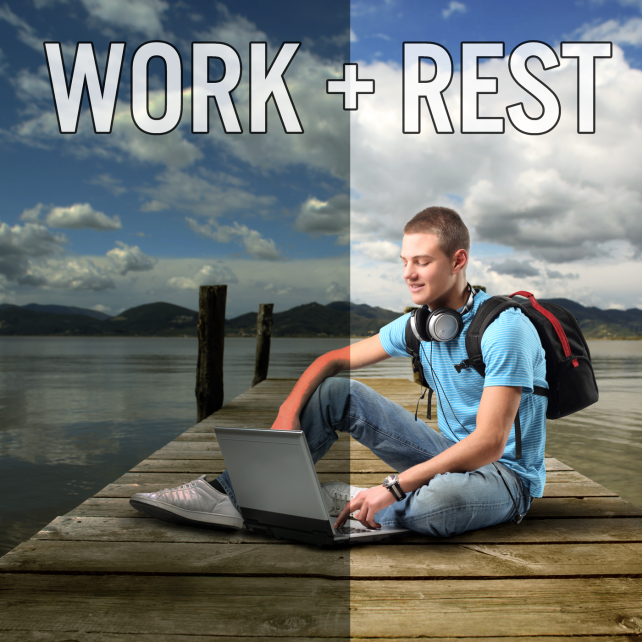Are you on vacation? If not, picture yourself there. If it helps, picture some vacation advertisements – a family walking on the beach hand in hand. A hammock and cold drink. A mountain, or a city, or whatever means rest to you!
It feels good, doesn’t it? It’s proven: in a study published in Journal of Occupational Medicine. Three days after vacation participants reported fewer physical complaints, a more positive mood, and better sleep.
But vacation can’t solve everything. The study found the big picture of life unchanged from vacation. There was no change to general life-satisfaction. Five weeks after the end of vacation only the extent of physical complaints was still significantly smaller as compared to the pre-vacation level. Everything else was back to normal. http://occmed.oxfordjournals.org/content/50/3/167.full.pdf
So how do we really rest, if hopping on a plane, renting a cottage or vegetating at home just aren’t enough?
It means clearing our heads and hearts, but not by zoning out, bur rather by focusing them on something else….God!
We asked some people: what helps you clear your head on vacation?
Question: What helps you clear your head on vacation? How long does it take to distance yourself from work?
Ryan Sim - August 26, 2015
Wednesday - Change It - Finding Rest
From Series: "Work and Rest"
Just in time for summer's blend of work and rest, Redeem the Commute is starting a new series of daily challenges to help busy people restore life to the commuting lifestyle. This seven week series will look at the meaning and purpose of work, rest, and ancient practices that have helped followers of Jesus to keep the two in perspective and balance for centuries.

